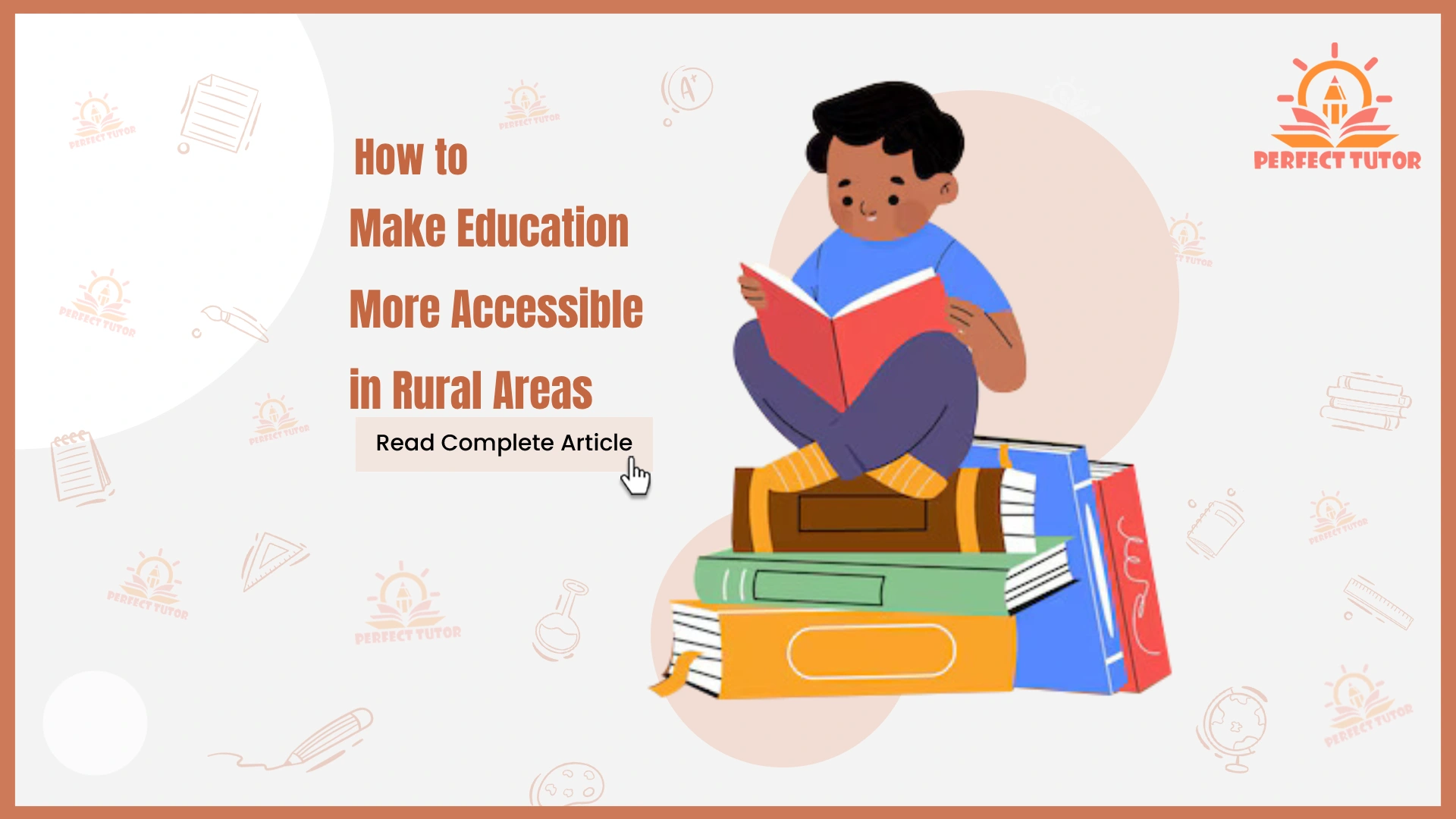How to Make Education More Accessible in Rural Areas
Education is the key to a brighter future, but access to quality education is still a challenge for many rural students. Given the differences between rural and urban areas in terms of educational facilities, rural schools often face problems such as a lack of proper infrastructure, a shortage of teachers, and limited learning materials.
The lack of access to education can trap people in poverty and slow down the development of an entire community.
By solving these problems and finding practical ways to improve, we can help make education easier to access in rural areas. This will give every child, no matter where they live, the chance to learn, grow, and succeed.
In this blog, we will explore the problems facing rural education, discuss their impact, and offer practical solutions to make education more accessible to rural students.
Understanding the Education Gap Between Rural and Urban Areas
The education system in rural areas faces many challenges that create a gap between rural and urban schools. Rural schools often lack necessary resources such as textbooks, computers, and proper classrooms. Many schools in rural areas do not have access to electricity or clean water, making it difficult for students to focus on their studies.
On the other hand, urban schools are usually equipped with modern technology, experienced teachers, and a better learning environment. This difference in resources leads to poor education in rural areas, where students do not have the same learning opportunities as their urban classmates. This results in children in rural areas having difficulty moving forward, which can impact their future job prospects and overall development.
Read Also:- How to Balance Extracurricular Activities with Tutoring and Schoolwork
Problems of Education in Rural Areas
Education problems in rural areas are often linked to lack of infrastructure, poor availability of teachers and socio-economic factors affecting families. Some of the major problems are as follows:
Inadequate School Facilities
Many rural schools lack basic facilities. Classrooms are overcrowded, so students have to study in uncomfortable conditions. In some cases, schools do not have enough teachers to teach all the students. This overcrowding and lack of facilities contribute to poor learning outcomes.
Lack of Qualified Teachers
The biggest challenge in the rural education system is finding and retaining qualified teachers. Many trained teachers prefer to work in urban areas where salaries are better and living conditions are more comfortable. For this reason, rural schools tend to have untrained or inexperienced teachers, which reduces the quality of education.
Long Distances to Schools
In many rural areas, students must walk long distances to reach school. Without comfortable transportation, students may skip classes or drop out altogether. This distance is one of the biggest problems for rural education, especially for young children.
Economic Challenges
Many families in rural areas cannot afford the costs associated with schooling such as uniforms, books, and transportation. In some cases, children are expected to help their families with chores instead of attending school, leading to high dropout rates.
Cultural Factors
In some rural areas, girls' education is not considered as important. Early marriage and women's traditional roles often prevent girls from continuing their education. This also increases the gap between boys and girls in receiving education.
Importance of Education in Rural Areas
The importance of education in rural areas cannot be underestimated. Education is essential to improve the economic and social condition of individuals and communities. It helps lift people out of poverty by providing them with skills and knowledge that give them better job opportunities. Apart from this, education also plays an important role in empowering women, promoting health, and promoting community development.
For rural communities, education is the key to breaking the cycle of poverty and underdevelopment. When students in rural areas receive quality education, they are more likely to return to their communities as skilled professionals and bring about positive change.
How to Make Education Accessible in Rural Areas
To solve the problems of rural education and make education more accessible, we need to work on a few important things:
Free or Affordable Education
Providing free or affordable education can help reduce the financial burden on families in rural areas. Governments can provide free school supplies, uniforms, and meals so students don't have to drop out due to a lack of resources.
Improving School Infrastructure
The first step to improving the education system in rural areas is to invest in school infrastructure. Governments and private organisations must ensure that rural schools have safe, well-equipped buildings with proper sanitation, electricity, and drinking water. Providing these basic facilities can greatly improve the learning environment for students.
Teacher Training and Incentives
Recruiting and retaining qualified teachers is essential to improving rural education. Teachers can be attracted to rural schools by offering better salaries, housing, and incentives. Regular training programmes should also be initiated to help teachers improve their skills and adapt to the unique challenges of teaching in rural areas.
Use of Technology for Learning
Technology can help reduce the difference between rural and urban education by providing access to online learning platforms. By equipping rural schools with computers and internet facilities, students can benefit from digital learning resources. This can be especially helpful in areas where there is a shortage of qualified teachers.
Community Involvement
Involving the community can help overcome cultural and financial barriers to education. Parents and local leaders should be encouraged to get involved in school management and help make important decisions. Teaching parents why education is important, especially for girls, can ensure that children attend school regularly.
Providing Financial Support
Offering scholarships, free school materials and meals can reduce the financial burden on rural families. These initiatives can encourage more children to attend school and stay in the education system longer.
Mobile and Satellite Schools
In remote areas where it is difficult to build permanent schools, mobile or satellite schools can provide education to students. These schools travel to different villages and educate children who would otherwise be unable to access education.
Adult Education Programs
Teaching parents why education is important can help them support their children's schooling. Adult education programs can also provide parents with basic skills to help them understand why it is important for their children to stay in school.
Multilingual Education
To solve language problems, schools can start multilingual education programs. These programs allow students in rural areas to learn in their local language as well as the language used in their lessons. This way, students can understand their lessons better and perform well in school.
Conclusion
Improving education in rural areas is crucial to closing this gap and ensuring that every child, no matter where they live, receives a good education. By solving issues such as poor school buildings, lack of adequate teachers, and cultural barriers, we should try to create a better and more inclusive education system for rural areas. Governments, NGOs and local communities must work together to implement solutions that benefit rural students and help them succeed in life.
Contact Perfect Tutor:
If you are looking for quality tutoring services for your child in rural or urban areas, Perfect Tutor offers personalized tutoring solutions according to the needs of students. Our experienced tutors can help students overcome academic challenges and excel in their studies. Visit Perfect Tutor for more information.



 +91 8700847275
+91 8700847275
 +1 8009616567
+1 8009616567